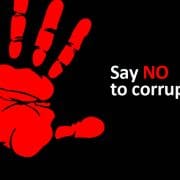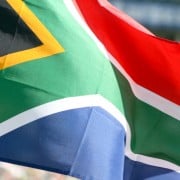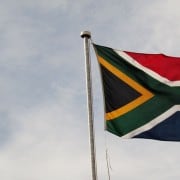|
Getting your Trinity Audio player ready...
|
By William Gumede
This article is sourced from Wits University website.
South Africans are simply not angry enough, protesting enough and shaming the ANC government and leaders enough for their corruption, state failure and decay.
Mediocrity, incompetence and callousness by government and elected leaders are now accepted as commonplace. They do not elicit the requisite national uproar. These ills are now collectively resignedly accepted as normal, acceptable and the way things are and will be.
For another, collective anger are often misplacedly directed at scapegoats, conspiracies and the past or justifications are found for them – rather than at the government and leaders who are responsible. Or the corrupt, incompetent and uncaring government and political leaders are hero worshipped – buttressing their unaccountable behaviour. Resigned acceptance of government corruption, state failure and lack of care makes it acceptable for government and elected leaders to continue to behave corruptly, incompetently and callously.
Nations have dominant national psyches which determine what will be viewed as acceptable, normal and to be tolerated from their governments, leaders, and institutions, what will cause collectively outrage, and what the country will be obsessed with. The collective acceptance of corruption, incompetence and system decay destroys the idea of holding government and leaders accountable – without which corruption cannot be tackled, state performance cannot be improved and decay across society cannot be reversed.
Once we as a country accept these astonishingly low standards as normal from our government, the country will continue on its path to fully fledged failed state like most African countries since the end of colonialism. In post-Second World War postcolonial Africa, many nations slumped into national psyches which find corruption, state failure and decay as the normal way things are in their countries.
In such African post-colonial nations there therefore were no collective societal impetus over time to reverse state failure, systemic corruption and institutional, systems and behavioural decay. This goes to the heart of the reason why the majority of African countries have been failed, broken and lawless states since the end of colonialism. In contrast, societies in successful post-Second World War East Asian developmental states, such as Japan, South Korea and Singapore, shamed corrupt, incompetent and uncaring and government managers and political leaders – which brought these countries high levels of accountability, and was at the heart of their economic success.
The cherished belief that South Africans will rise up against government callousness is a myth. Former ANC and South African President Jacob Zuma was tolerated in government for nine wasted years – in spite of the systemic corruption, state failure and lawlessness under his watch, and which impact will take the country years to recover from.
In South Africa, there appears to be an acceptance that corruption, incompetent and state failure is the identity of South Africa. Paradoxically there is often a celebration if public services are just being delivered, no matter how tardy, mediocre, and inconsistent. Crime is runaway, power outages are now permanent and infrastructure have collapsed across the country.
In fact, there is a danger that the national psyche or the soul of South Africa will be one that associates the country with corruption, incompetence and failure.
We urgently need to rewire South Africa’s national psyche to make corruption, incompetence and decay as unacceptable – sometime against the country would rise up against. We will have to individually and collectively hold honesty, competence and caring government as dear to all our hearts – as part of our national psyche. Our national pride, identity and patriotism must be centred on honesty, competency and caring for others. It must be focused on excellence, merit and justice that goes across colour, political party divide and the past.
And as a nation, we must rebel when government and leaders do not deliver, do not govern in the widest public interests and with honesty – no matter their struggle credentials, colour and their political affiliation. Citizens must be on the streets every day. Organised business, civil society and individual citizens must more strongly voice their disgust against corrupt, incompetent and uncaring government and leaders.
South Africans must shame government and political leaders who are corrupt, incompetent, and uncaring in similar ways that citizens in East Asian developmental states did, which underpinned their economic miracles, from either civil war, colonialism or extreme poverty.
Finally, the ultimate constructive anger against corruption, incompetence and uncaring government and leaders are not to vote for parties and leaders who are corrupt, incompetent and uncaring.
William Gumede is Associate Professor, School of Governance, University of the Witwatersrand and author of Restless Nation: Making Sense of Troubled Times (Tafelberg).








